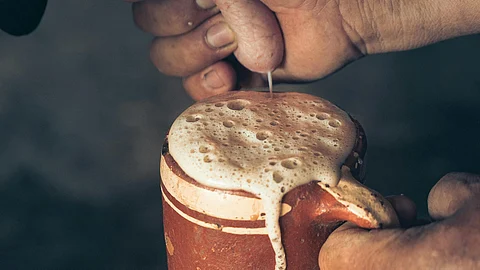Precautions: How to Stay Safe
Until rabies transmission via milk is absolutely established, experts concur that the best policy is to drink only pasteurized milk and milk products. Pasteurization destroys any possible viral threat.
To minimize the risk:
Boil or pasteurize milk before drinking it.
Vaccinate family pets to avoid rabies infection.
Avoid direct contact with animals that are acting strangely.
Get immediate medical care if you are exposed to a possibly rabid animal. [2,3]
About the Greater Noida Rabies Case
Last month in Greater Noida, a woman unknowingly consumed milk from a rabies-infected cow. The cow had contracted rabies from a stray dog, but the family remained unaware of the infection.
Even after the cow began to develop symptoms, leading the family to vaccinate the cow, but the woman did not go for medical care. She soon began to develop severe rabies-like symptoms such as intense hydrophobia (fear of water), panic attacks, and violent responses to light and water. Her symptoms intensified, and she was rejected by several hospitals for medical treatment. Sadly, she passed away a short while after she returned home.
Takeaway
Although there is no conclusive proof that rabies can be spread through milk, the risk is present. To remain safe, professionals highly advise boiling or pasteurizing milk prior to consumption and ensuring livestock and pets are well vaccinated.
Rabies is a fatal but curable disease. Awareness, prompt medical care, and safe food handling can minimize its effects.
References:
1. "Is Rabies Transmissible Through Milk?" Global Scientific Journal. Accessed March 22, 2025. https://www.globalscientificjournal.com/researchpaper/IS-RABIES-TRANSMISSABLE-THROUGH-MILK.pdf.
2. Scope Blog. 2025. "Milk and Disease Risk: Bird Flu and Pasteurization." Scope Blog. February 25, 2025. https://scopeblog.stanford.edu/2025/02/25/milk-disease-risk-bird-flu-pasteurization/.
3. Centers for Disease Control and Prevention (CDC). "Rabies Prevention." Centers for Disease Control and Prevention, 2025. Accessed March 22, 2025. https://www.cdc.gov/rabies/prevention/index.html.
(Input from various sources)
(Rehash/Muhammad Faisal/MSM)


